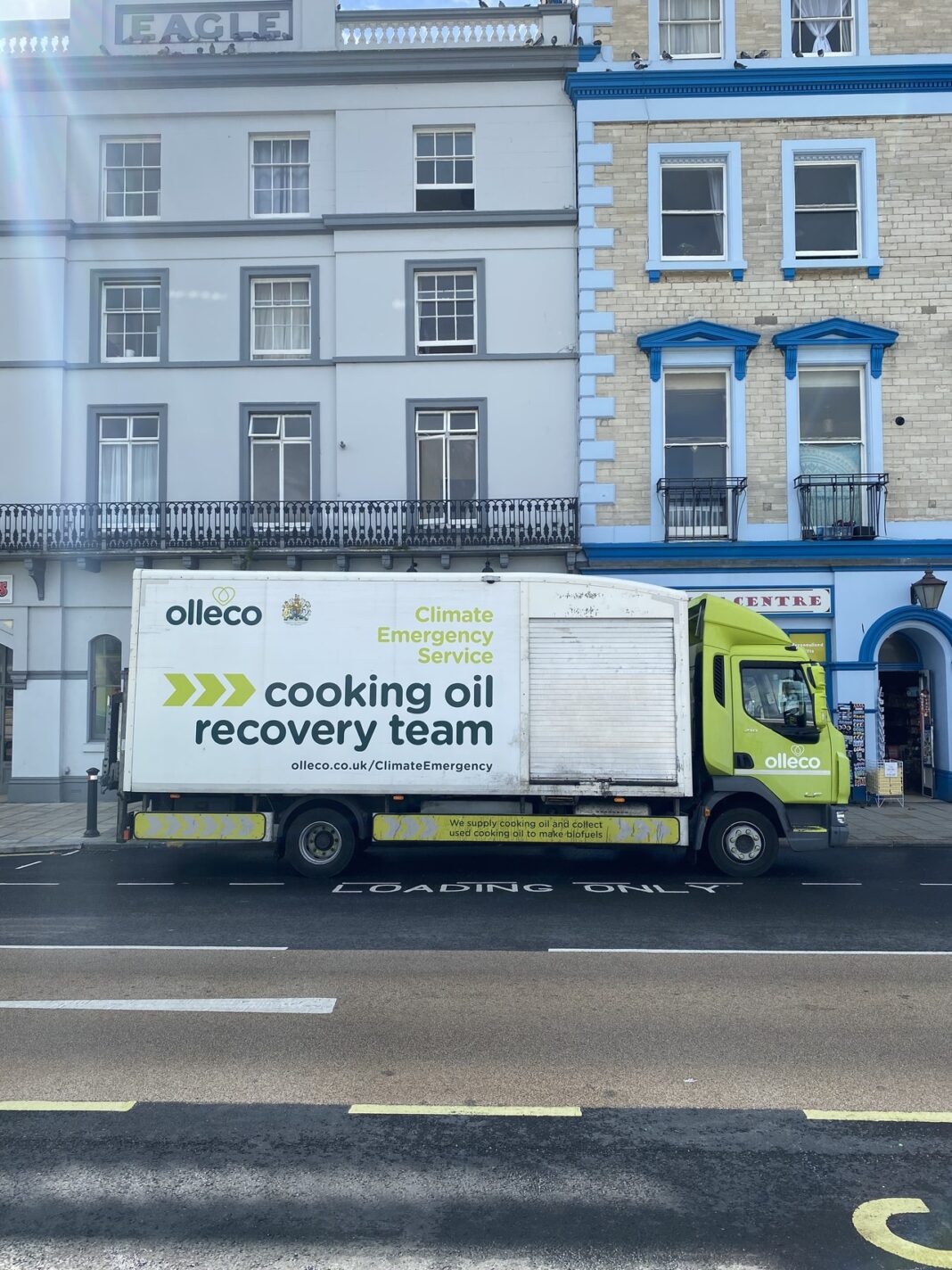A UK company that recycles cooking oil into biofuel calls itself a climate emergency service.
Cooking oil helps make our food taste amazing. But it’s often discarded in an environmentally harmful way. In the U.S. alone, two hundred million gallons of the stuff is improperly disposed of each year.
When people dump used oil down the drain, it can cause “fatbergs” — congealed lumps of fat that clog water systems and can cause damage, overflowing, and flooding. Fatbergs come in all sizes, with the infamous Westminster Fatberg in London measuring some 820 feet in length and weighing nearly 287,000 pounds. Dealing with fatbergs is complicated and messy, not to mention costly. What’s more, oil in sewage systems eventually makes its way into natural water systems, creating a film on the surface of water, and preventing oxygen from reaching the wildlife and plants below.
This is why Olleco calls itself a “climate emergency service.” Olleco partners with hospitality venues across the UK, collecting food waste and used cooking oil to prevent them from entering the environment, and turning them into biofuels, including biodiesel.
It works like this: as food waste decomposes in Olleco’s digesters, it produces methane. The methane (dangerous when released into the atmosphere; powerful when turned into energy) powers a refinery that turns discarded food oil into biodiesel. The biodiesel then powers commercial vehicle fleets, reducing carbon emissions by 89% over regular diesel, according to Olleco. Olleco estimates that if they could extend their reach to all food waste and cooking oil in the country, the resulting environmental benefits would match those of taking three and a half million cars off the road.
Similar initiatives around the world are tapping the benefits of recycling cooking oils. In Madrid, for instance, residents can drop their used oil at any of Repsol’s 150 recycling stations in hopes of boosting the city’s currently dismal residential oil recycling rate of five percent. (Belgium boasts a sixty percent recycling rate.) Cities around Canada and the U.S. are putting food oil recycling programs in place for residents — both to avoid the costs of improperly discarded oil and to repurpose the oil as biofuel.
What You Can Do
Don’t dump oils and fats down your drain or your toilet. Find a place in your community to dispose of your oil (try Earth911’s guide). If nothing exists, put any oils/fats into a container and freeze until it’s full and then throw it out. Dear Dot offers more advice.


